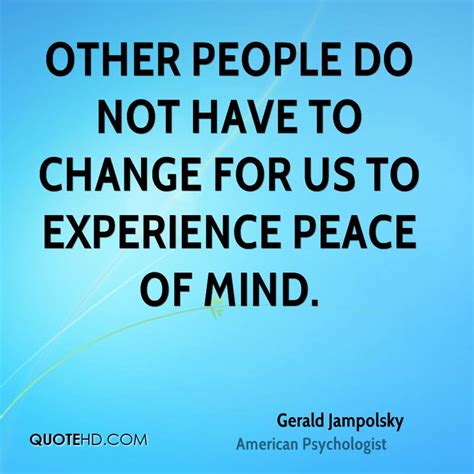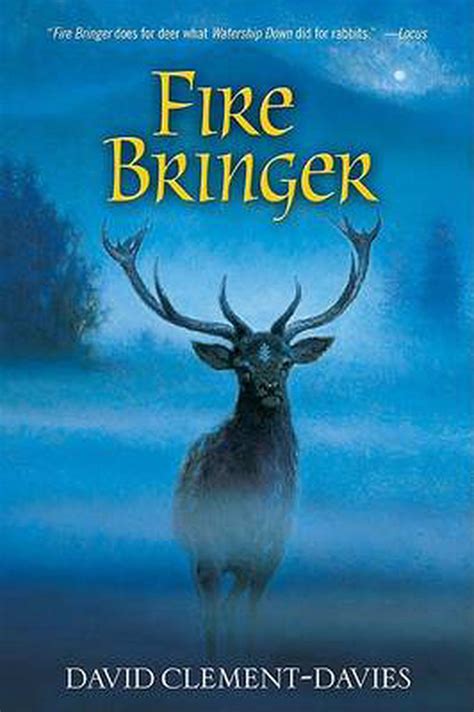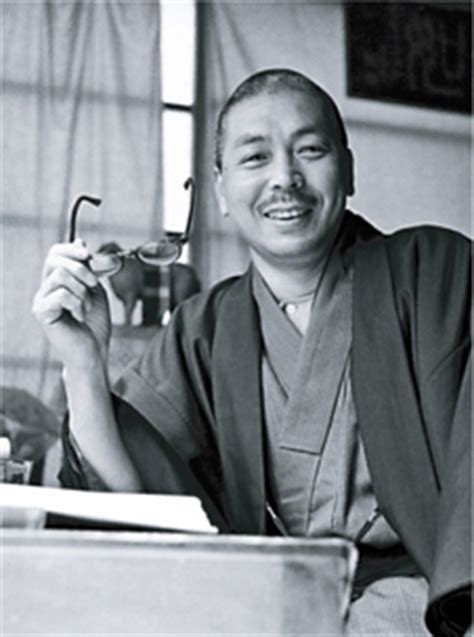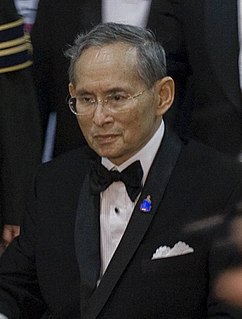A Quote by Gerald Jampolsky
No way exists in the present to accurately determine the future effect of the least of our actions.
Related Quotes
Most people have learned to live in the moment. The argument goes that if the past has uncertain effect on the present, there is no need to dwell on the past. And if the present has little effect on the future, present actions need not be weighed for their consequence. Rather, each act is an island in time, to be judged on its own. ... It is a world of impulse. It is a world of sincerity. It is a world in which every word spoken speaks just to that moment, every glance given has only one meaning.
That we can never know," answered the wolf angrily. "That's for the future. But what we can know is the importance of what we owe to the present. Here and now, and nowhere else. For nothing else exists, except in our minds. What we owe to ourselves, and to those we're bound to. And we can at least hope to make a better future, for everything.
The purpose of the present study is not as it is in other inquiries, the attainment of knowledge, we are not conducting this inquiry in order to know what virtue is, but in order to become good, else there would be no advantage in studying it. For that reason, it becomes necessary to examine the problem of our actions and to ask how they are to be performed. For as we have said, the actions determine what kind of characteristics are developed.
Psychoanalysts are fond of pointing out that the past is alive in the present. But the future is alive in the present too. The future is not some place we’re going to, but an idea in our mind now. It is something we’re creating, that in turn creates us. The future is a fantasy that shapes our present.
Human behaviour reveals uniformities which constitute natural laws. If these uniformities did not exist, then there would be neither social science nor political economy, and even the study of history would largely be useless. In effect, if the future actions of men having nothing in common with their past actions, our knowledge of them, although possibly satisfying our curiosity by way of an interesting story, would be entirely useless to us as a guide in life.
We are responsible for what we are, and whatever we wish ourselves to be, we have the power to make ourselves. If what we are now has been the result of our own past actions, it certainly follows that whatever we wish to be in the future can be produced by our present actions; so we have to know how to act.
... the loss of belief in future states is politically, though certainly not spiritually, the most significant distinction betweenour present period and the centuries before. And this loss is definite. For no matter how religious our world may turn again, or how much authentic faith still exists in it, or how deeply our moral values may be rooted in our religious systems, the fear of hell is no longer among the motives which would prevent or stimulate the actions of a majority.




































